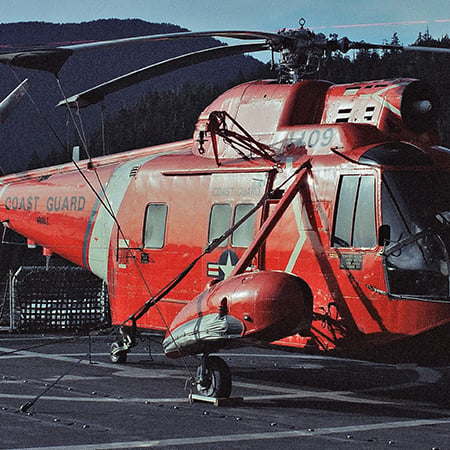

Finding out that your loved one died at sea, or died from their injuries shortly after being rescued by the Coast Guard is a traumatic and harrowing experience no one wishes for. However, if you’re grieving the loss of your spouse, child, or parent, you deserve to know your legal rights. One of the most important federal maritime statutes is the Death on the High Seas Act (DOHSA).
As you may already know, this law allows a representative of a deceased seaman—usually the executor of their estate—to sue the shipowner if the seaman died aboard the vessel under certain conditions. The most important of these conditions are that:
- The fatal accident had to have been due to negligence or the ship’s unseaworthiness
- The ship must have been at least three nautical miles away from shore at the time of the accident.
While the Death on the High Seas Act is similar to the wrongful death laws that set the grounds for civil lawsuits in state courts and the federal judicial system, maritime death cases are very different from onshore cases of wrongful death.
Like state and federal wrongful death laws, DOHSA limits what families are able to receive compensation for after a death. However, while state laws include a list of losses that deserve compensation, DOHSA is much less specific. The law says that recovery “shall be a fair compensation for the pecuniary loss sustained by the individuals for whose benefit the action is brought.” In this context, pecuniary means “financial” or “relating to money,” so the law says the family can recover its financial losses due to the death of the seaman. What does that mean?
The types of financial losses that can be recovered in a maritime death case
By now, you won’t be surprised to hear that the federal courts have been interpreting what this phrase means ever since Congress passed DOHSA in 1920. At this point in time, precedent law has settled that six categories may count as pecuniary loss for maritime death cases:
- Funeral expenses. If the deceased person’s dependents paid for the funeral, that money can be recovered. However, at least one federal Circuit Court has said DOHSA cannot force funeral expenses to be repaid if the cost came out of the decedent’s estate.
- Lost income. The family is entitled to recover the projected earnings of the deceased person from the time of the accident until retirement, plus the value of any retirement income (pension, Social Security benefits, and the like) for a normal lifespan.
- Lost job benefits. If the deceased person’s employment provided medical insurance or other benefits for family members, then the cash value of those benefits can be recovered.
- Lost inheritance. It is reasonable to assume that the value of the deceased person’s estate might have grown larger if he or she had lived a normal lifespan. The plaintiff can ask for the damage award to include the increase in value that would have occurred if the seaman had not died.
- Lost household services. The routine household work that the deceased person would have performed—cleaning, minor home repairs, driving the family car, and similar tasks—will now have to be done by someone else, requiring an additional expense for the family. The costs of hiring someone to mow lawns, clean out rain gutters, and other household jobs can be calculated and included in the damages won.
- Lost family nurturing and guidance. If the person who died was a parent, the nurturing and moral lessons he or she would have given his or her children can be assigned a cash value and recovered under DOHSA—at least in some jurisdictions. Some federal District Courts limit these claims only to instances where the family has very young children, who get the greatest benefit from parental instruction.
Of course, it’s up to the plaintiff—the person bringing the lawsuit—to show that the death actually caused a loss in any category and to assign a valid dollar amount to the loss.
The types of losses you can’t recover
There are two areas of recovery in conventional wrongful death claims that are not available for lawsuits under DOHSA:
- Pain and suffering. Because the suffering of the seaman before death is essentially non-economic in nature, it cannot be compensated under the Death on the High Seas Act.
- Medical treatment for the deceased person. Because the family does not pay for medical expenses before the decedent dies, those expenses do not qualify for reimbursement under DOHSA.
Getting help with questions about a maritime death claim
An attorney who is experienced with Jones Act cases can help surviving family members understand their rights after a death or accident at sea. If you have questions about a DOHSA wrongful death claim, contact our law office today at 1-877-724-7800 to schedule a free, confidential case review with our experienced attorneys.

